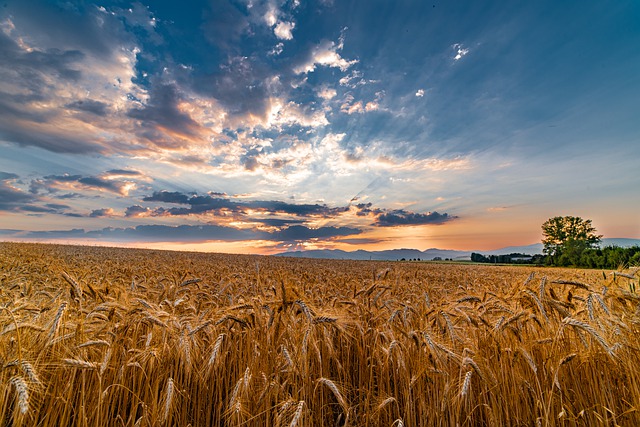Fr Paolo Consonni, MCCJ
“The harvest is plentiful, but the workers are few. Ask the Lord of the harvest, therefore, to send out workers into his harvest field” (Lk 10:2)
Since I come from a family of peasants, it breaks my heart to see images of the vast wheat fields in Ukraine scarred by the violence of war. Impact craters caused by the explosions of bombs, rockets, and mines are spotting the golden vastness of the wheat fields. Long tracks of armored vehicles are running across the crops. In that war-torn country, the harvest is ready, but only a few farmers remain to work in the fields. Those who continue the harvesting must dodge bombs and mines in order to gather some crops.
Harvesting can be a dangerous job. In this Sunday’s Gospel (Lk 10:1-9), Jesus sends seventy-two disciples (a biblical number symbolizing all the nations of the earth) to gather the harvest “like lambs among wolves.” What harvest? The harvest is composed by all those who, because of sickness, poverty and desperation, desire God’s healing, His saving power and love. It is all those who hope for a fresh start in life and to live more meaningfully under God’s care. Those who are lost and need to find a way home. The seventy-two disciples were sent to tell them that “The kingdom of God has come near to you” (v.9). In spite of all their limitations and fragilities, the presence of Jesus’ disciples was already the concrete sign of God’s saving action among them.
Jesus gave precise instructions so that the disciples could dodge dangers to protect the harvest. They were not to be like soldiers, trampling down crops and people. They were to arrive barefoot (“do not carry sandals”), with gentleness and discretion. He told them not to waste time on the way and not to attract unwanted attention with purses and bags. They must humbly accept the hospitality offered to them without looking for more comfortable places. Jesus Himself assumed this “low profile,” “stay on point,” “unencumbered by luggage” style of ministry, and He felt it was really important for His disciples to evangelize in the same way. Poverty is not only a sign of relying on God but also a sign of carrying peaceful intentions and of respect for the hosts (“When you enter a house, first say, ‘Peace to this house’”).
Rejection must be accepted with the shaking of the dust off the feet, as if to say, no bad feelings should remain among them. Accept and move on: another big life-lesson that Jesus’ disciples must learn. In fact, when we serve God’s mission, sometimes things do not go as expected, and we easily fall into a sense of failure or frustration. How many times have we carried such negative feelings (I am a bad priest/teacher/parent!) because conversions are few, students do not listen, and our sons and daughters make choices that are different from ours? How many times do I look out my window and see the forest of buildings that make up my neighborhood, feeling so impotent, not knowing how to evangelize my neighbors…?
When we feel disheartened, it is essential to realize that we are sent to join in Christ’s mission and not ours. God Himself will bring the harvest to completion in His way and in His times. We only need to act and serve in His name.
There is a moving passage of the Little Prince of Antoine de Saint-Exupéry in which a fox explains to the Little Prince that only deep relationships give meaning to the world around us. At a certain point, the fox says to the Little Prince: “Look: you see the grain-fields down yonder? I do not eat bread. Wheat is of no use to me. The wheat fields have nothing to say to me. And that is sad. But you have hair that is the color of gold. Think how wonderful that will be when you have tamed me! The grain, which is also golden, will bring me back the thought of you. And I shall love to listen to the wind in the wheat . . .”
I wish that when looking at the “golden harvest” around us, be it our family, students, co-workers, church members or all those living in our neighborhood, we may not feel a sense of weariness and frustration, because the work is difficult and what we manage to gather is scarce. On the contrary, may their presence remind us of the One who chose and sent us, and of the love with which He trusted us. True, we are few and limited. But we carry the memory of Jesus’ friendship within us. Like the fox in the story, let us listen to the sound of the wind of the Spirit blowing among the forest of buildings of this crowded city and rejoice at the thought of the grace we have received. In spite of our misery, we are still the harvesters, the living signs that “the Kingdom of God has come near”…
(Image: robo1214 at pixabay.com)


 Follow
Follow


